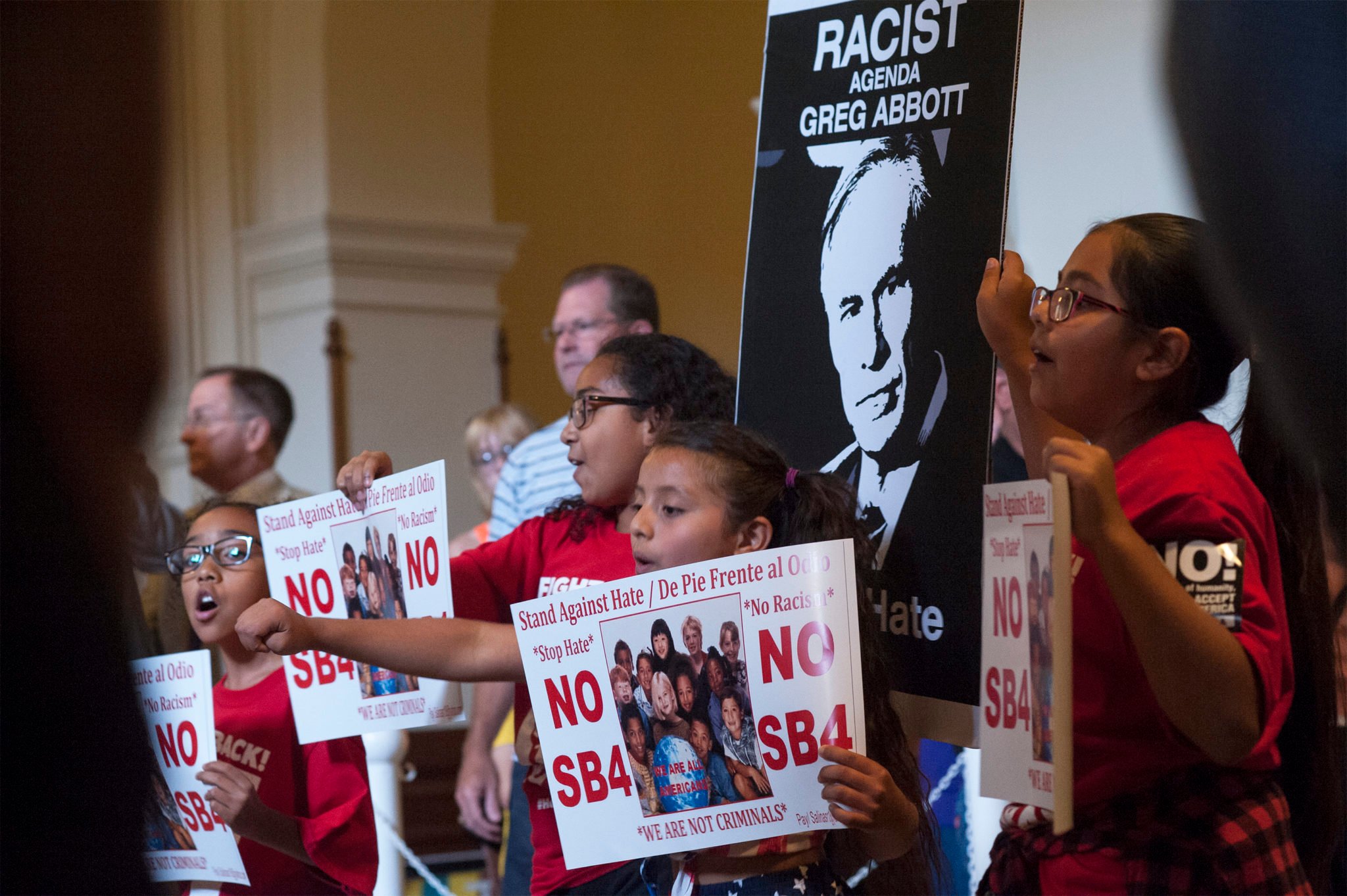
Senators Split on Sanctuary Cities at Interim Hearing


At a Senate committee meeting on “sanctuary cities” on Friday, Texas lawmakers strongly disagreed on the prospect of passing legislation that would penalize local law enforcement entities for not complying with federal immigration policies. At times, committee members even disagreed as to whether, or to what extent, sanctuary cities exist at all.
The term has no legal recognition but is commonly used to describe local jurisdictions where police do not ask people they’ve detained about their immigration status, or which do not consistently comply with detention requests from federal officials.
“A sanctuary city policy, whether implied or codified, would be to give sanction to what is unlawful,” said Senator Brian Birdwell, chair of the Senate Subcommittee on Border Security. Lieutenant Governor Dan Patrick has tasked the subcommittee with finding ways to “discourage governmental entities from putting in place policies that conflict with immigration laws.”
Patrick also charged the three-senator panel — which includes Brownsville Democrat Eddie Lucio Jr. and Edgewood Republican Bob Hall — with studying sanctuary city policies statewide and investigating “the number and types of crimes committed by previously arrested illegal immigrants within the jurisdiction of a ‘sanctuary policy.’”
Members of the public were invited to give testimony, and the meeting stretched for over three hours. Witnesses traveled from as far as El Paso to testify. The committee heard from local law enforcement officials, pastors, attorneys and private citizens, including a Houston woman who produced a document related to the city’s now-defunct Secure Communities program that she said proved the existence of her city’s “sanctuary” policies. Those policies, she said, contributed to the fact that “our children and our grandchildren are being murdered.”
Senator Jose Rodriguez, D-El Paso, disputed the significance of the document.
“There’s no indication that the Houston Police Department refuses to cooperate with the federal government, which is the definition of a sanctuary city,” Rodriguez said. “Every county in this state has an agreement with the federal government to report anyone who is brought to jail.”
Despite anecdotal claims and politically charged rhetoric, the committee was never presented with documentation of any codified sanctuary city policies, and the debate turned to whether or not informal sanctuary policies existed.
Critics of future sanctuary city bans worried that mandated federal immigration compliance could overburden local police forces, increase racial profiling and create a rift between communities and local law enforcement.
“We can’t have a two-tiered system, with one group of people treated one way by the law, and another group of people treated another way,” said Hall. “I don’t think anyone could argue that someone here legally should be treated differently than someone here illegally.”
Rodriguez argued that the federal government was indeed doing its job and noted that the current administration was “deporting record numbers” of undocumented immigrants.
Critics of future sanctuary city bans worried that mandated federal immigration compliance could overburden local police forces, increase racial profiling and create a rift between communities and local law enforcement.
“Low crime in the county … can be attributed to the mutual trust and respect between law enforcement and members of the community,” said El Paso County Sheriff Assistant Chief Tom Whitten. Sanctuary city legislation, he said, “targets the crux of these partnerships.”
Whitten’s concerns were echoed by a number of witnesses who said they, or their family members, had been reluctant to report crime for fear of deportation.
“If you’re assaulted and you have a kid, you wouldn’t call us because you’ll be separated from your family,” Whitten said.
During the 2015 legislative session, Senator Charles Perry, R-Lubbock, authored a sanctuary cities bill that aimed to cut off government funds for municipalities that prohibited local law enforcement officers from inquiring into the immigration status of detainees or arrestees. Perry’s bill died in the Senate during the same session that saw the passage of a multi-million dollar border security effort that will increase the area’s law enforcement’s presence, enact harsher penalties for human smuggling and ramp up intelligence operations in South Texas.
Ultimately, lawmakers were split along party lines as to whether sanctuary city bans would do more harm than good.
“Is there a need for sanctuary city legislation, given that there’s no definition, and given that all counties cooperate?” asked Rodriguez. “Is anything going to be solved if local law enforcement can inquire about immigration status?


